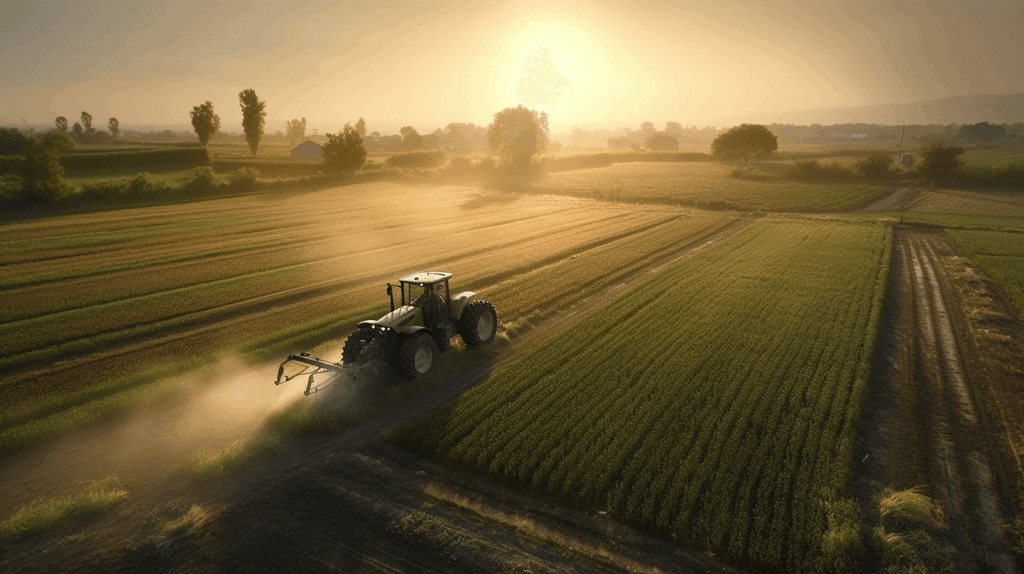Over the past few years, sustainable agriculture has become more important in protecting the environment, supplying nutritious food for people from all over the world, and assisting farmers. What is sustainable agriculture as well and why is it beneficial? This article will discuss four ways sustainable agriculture can benefit the entire world, with a focus on the ways it can benefit farmers as well as the environment. We’ll examine the practices that form the foundation of sustainable farming and assist the world in a variety of ways. Check out the article to learn more!
What Is Sustainable Farming?
Sustainable agriculture is an agricultural system that uses eco-friendly methods to produce food as well as fiber and other items. It aims to protect the environment as well as safeguard the health of the public. There are a variety of methods to sustainably farm; however, some practices that are common include organic methods such as diversifying crops, rotating fields, and utilizing cover crops. Sustainable farmers often also employ conservation tillage to keep topsoil in place and help reduce erosion.
Sustainable farming is crucial since it can reverse the negative consequences of climate change. It can also ensure our food supply and preserve natural resources. It’s a holistic approach to agriculture that is based on the longevity of our planet and its inhabitants.
4 Major Benefits of Sustainable Farming
Sustainable agriculture can bring many benefits to our planet. There are 4 ways that it can help:
1. Facilitating Crop Diversity
The diversity of the crops is vital to sustainable agriculture. A farm with a diverse array of plants is resistant to disease and pests and better able to handle the impacts of climate change. Diversity of crops can also help provide a constant supply of food, as various crops are harvested at different dates.
One method to increase diversity in the crop is to cultivate a variety of crops in a single field, also known as intercropping. Another method to increase diversity in crops is to use the practice of crop rotation. This involves cultivating various crops in different fields during different seasons. This stops the build-up of diseases and pests in the soil and also helps to improve the health of the soil.
2. Preserving Natural Resources
The world is confronted with grave environmental problems, including water scarcity and climate change. Sustainable farming practices can help conserve natural resources by utilizing the resources more efficiently. For instance, by using covers and mulch crops, the farmers are able to cut down on the quantity of water that is required to water their crops.
Furthermore, sustainable farming practices will improve the soil’s health, which decreases the requirement for pesticides and chemical fertilizers.
3. Boosting Soil Health
Healthy soils can be better keepers of carbon, which can help to combat climate change and make it more resistant to floods and droughts. There are a variety of ways farmers can improve the health of their soil through cover crops as well as composting.
Cover crops protect soil from erosion, as well as adding organic matter to the soil. Composting can add important nutrients to the soil, which improves the growth of plants and increases yields.
4. Enhancing Biodiversity and Ecosystems
Sustainable farming practices positively impact the biodiversity of ecosystems and their habitats. Utilizing methods such as rotation of crops, diversifying crop varieties, and establishing cover crops, growers are able to improve the health of soils as well as reduce erosion and create habitat for important insects, as well as wildlife. These methods also aid in protecting water resources by decreasing the need to use chemical fertilizers and pesticides. Additionally, sustainable farming systems typically require less energy for operation, which could further decrease the environmental impact.
The Challenges of Sustainable Farming

Sustainable agriculture is not without its difficulties. The most difficult thing is finding ways to grow enough food to satisfy the demands of an increasing population, while preserving nature’s resources.
Also, we need to make sustainable farming economically viable, so that more farmers can shift to sustainable farming practices. Technology is the solution to a variety of agricultural problems. Farmers should incorporate modern technology for agriculture to aid in managing crop residue, as well as reduce pesticide usage and decrease the use of natural resources.
Conclusion
Sustainable agriculture is crucial to ensure a healthier and sustainable future. It not only helps in the protection of the ecosystem and protects the environment, but it also offers farmers in developing nations the chance to attain the financial independence they need and maintain their economic stability. It is our responsibility to ensure that sustainable agriculture can continue to flourish across the globe. A more flexible and sustainable system of agriculture can help feed the world for future generations.

